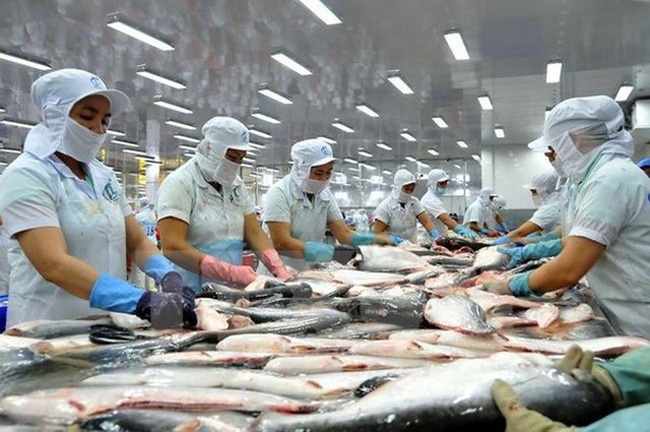Pangasius exports increase by 0.6% in Q1
VOV.VN - Vietnam’s tra fish (pangasius) exports during the first quarter of the year recorded an increase of 0.6% to US$336 million compared to the same period from last year, according to the Vietnam Association of Seafood Exporters and Producers (VASEP).
March alone witnessed local pangasius exports surge by 11% to US$137 million against last year’s corresponding period following a decline experienced in February.
The demand for Vietnamese pangasius bounced back recently, causing the price of raw pangasius in the Mekong Delta region to rise considerably.
According to the Agro Processing and Market Development Authority (Agrotrade), the current price of raw pangasius fish ranges between VND21,000 - 22,000 per kilo, an increase of about VND2,000 per kilo compared to the previous month.
Despite this rise, the demand for the product remains lower than in previous years due to low purchasing power of China, the largest consumer of Vietnamese pangasius.
China has recently moved to tighten control over imported frozen seafood shipments, including pangasius fillets, which require a certificate of food testing, a certificate of quarantine, a certificate of disinfection, a certificate of origin traceability, along with a negative novel coronavirus (COVID-19) test, before entering the market.
Most notably, the demand for pangasius in the United States has been increasing as both retailers and food service operators are busily purchasing these products for the spring and the coming summer.
Vietnamese businesses are currently completing the signing of contracts, with the price of imported pangasius in the US market increasing by between 6% - 7% since the end of February.
The price of pangasius fillets in the US has increased from between US$1.6 - 1.65 per pound to US$1.7 - 1.75 per pound in late February, while the selling price of pangasius within the EU market remains stable.
Experts say there are bright prospects ahead for pangasius exports in the future following the imminent recovery of a number of major markets in the aftermath of the novel coronavirus (COVID-19) pandemic.




